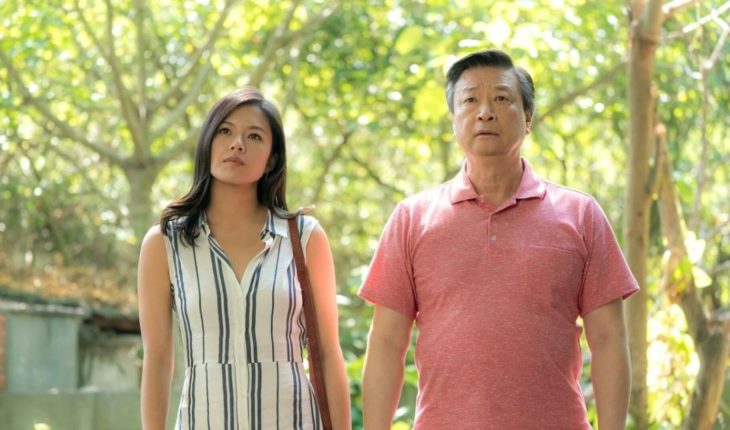Many of the most recent releases continue to claim that screen performance matters more than ever. For example, the Asian community on American soil is huge, and it also needs to be able to relate to the fictional stories and characters that abound in film and TV. Broadly speaking, we can say that “Tiger tail” (Tigertail, 2020) tries to gather the witness of simple and emotional stories like “The Farewell” (2019), although Lulu Wang’s film stands out in many more respects. Alan Yang, a young American filmmaker and actor of Chinese origin, best known for his collaborations on sitcoms such as “Parks and Recreation”, “The Good Place” and co-creator of “Master of None” with Aziz Ansari, moves for a while into the realm of drama, writing and directing this second feature film centered on Pin-Jui, a story that spans more than six decades and several generations , and walks us from the rice fields of Taiwan in the fifties to the streets of New York.
Little Pin-Jui lost her father at the age of one and mum left him in the care of her grandmother to try to get a better job in the city. This was the great break of his life, losses that forged that mature man who, in the future, little and nothing can connect with his family. Eventually, young Pin (Hong-Chi Lee) returns home to his mother and share work in a precarious factory. She also manages to reconnect with a childhood friend, Yuan (Yo-Hsing Fang), an almost impossible love due to their economic differences. But Pin-Jui keeps ambitions with a better pass for him and his mom, and a future in the United States, a dream he believes in when he agrees to marry Zhenzhen (Kunjue Li), the shy daughter of his foreman. Weighing what is best for him and his people, he leaves his home country (and his lover) without looking back, promising to send for his mother when he has settled down.
Father and daughter, almost two strangers
America, and more precisely the neighborhoods of New York, are not what Pin-Jui and his young wife had in mind, but they still do their best to fit in and get on with their lives in this new scenario where they don’t know anyone, and dreams don’t come true so easily. Yang does not keep the linear story, comes and goes back in time, and introduces us to a mature and taciturn Pin-Jui (Tzi Ma) who, in the present, must deal with his mother’s recent death, his loneliness and the little connection he has with his daughter Angela (Christine Ko), who goes through his own tribulations and could use a few words of support from his father. This is the essence of “Tiger Tail”, a film with 100% American production that tries to maintain the rhythms and aesthetics of Asian stories, more contemplative and concentrated in the small details. Yang has a great staging and performances, manages to convey the sensibility of a semi-fictionalized story based on his father’s own experiences, but fails to touch the most sensitive fibers with this protagonist who sacrificed everything in the name of well-being, setting aside his longings and the needs of those around him.
Leaving everything behind
The monotony of excessive work, responsibilities, and the little affection (and communication) he can express to his wife and children, make Pin-Jui an empty man who finds only solace in the memories of that distant past that was left behind, poor and opportunitless but apparently much happier, in Taiwan with his mother and Yuan’s company. This is the reconnection that Yang focuses on: a protagonist who must reconcile what he was to recompose an present that was too vain and hermit. “Tiger’s Tail” (huwei, in its original language), is precisely the key to healing and reconciliation, but Yang’s film, while correct in all its aspects, does not always work. The filmmaker leaves many gaps to fill and can’t help but get repetitive, implying that, in reality, there’s not much to delve into the short story of Pin-Jui.6.0
Tiger Tail
(Tigertail, Alan Yang, 2020) In this note:





